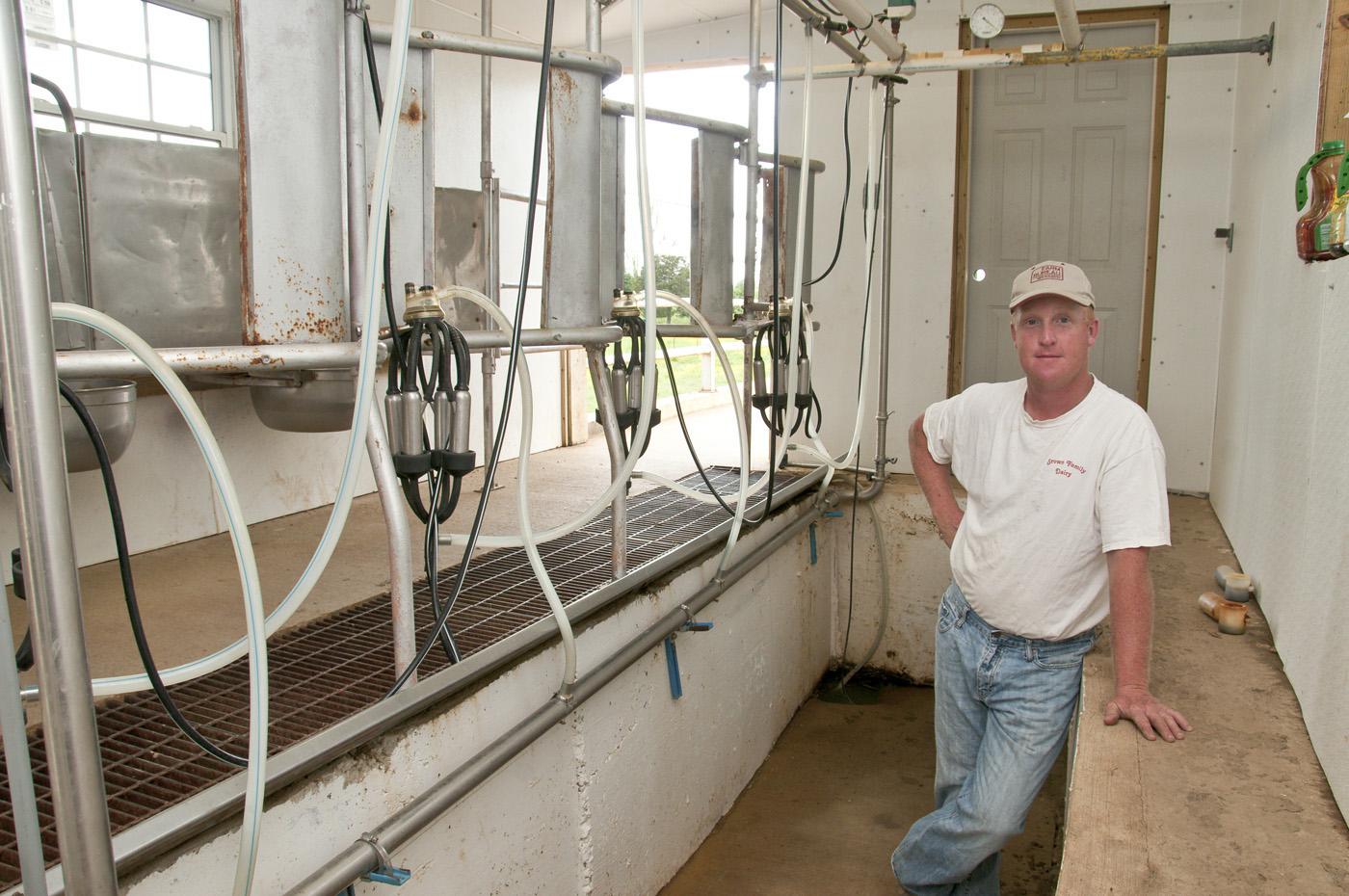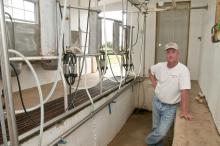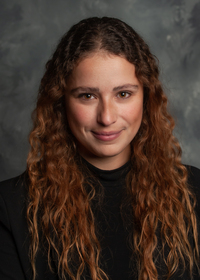Information Possibly Outdated
The information presented on this page was originally released on June 24, 2010. It may not be outdated, but please search our site for more current information. If you plan to quote or reference this information in a publication, please check with the Extension specialist or author before proceeding.
Extension expertise helps dairy farmer to dream big
By Patti Drapala
MSU Ag Communications
YOCONA – Current economics have forced many Mississippi farmers out of the dairy business, but a strong work ethic, savvy marketing ideas and help from Mississippi State University allowed Billy Ray Brown to start a unique dairy operation in Lafayette County.
Brown’s product -- natural or full-bodied milk from grass-fed Jersey cows -- is flying off the shelves at the Oxford farmers market store and in many restaurants. People in the community think nothing of driving up to Brown’s family farm to pick up a few half-gallons of milk and a pint of cream. Other producers have noticed his success at finding niche markets for his milk products, and they often call with questions.
Brown takes their curiosity, along with his accomplishment, all in stride.
“I grew up on a farm, and I’ve worked soybeans, sod, hogs and beef cattle practically all my life,” Brown said. “By the time I was 15, I was buying beef calves and have been working with these animals ever since.”
Brown had no previous experience managing dairy cattle, but a trip to a local Oxford grocery store one night about two years ago sparked an idea.
“I was shopping for groceries and noticed organic milk selling for $4 per half-gallon, which was significantly higher than regular milk,” Brown said. “Despite the higher price, people were buying the organic milk like crazy.”
As he read the label, Brown noticed the organic milk came from Colorado. He reasoned he could do that, too.
“Billy Ray Brown recognized a golden opportunity to supply consumers in the Oxford area with farm-fresh milk and was wise enough to thoroughly research all aspects of getting into dairying before investing in the business,” said MSU Extension Service dairy specialist Lamar Adams.
Brown worked closely with local and state Extension specialists in animal science, agricultural economics, and food science, nutrition and health promotion.
“He equipped himself with knowledge from his first vision of starting a value-added dairy business to the first day he began milking cows and bottling milk on his farm,” Adams said.
Brown built facilities for his dairy venture and purchased four Jersey cows in July 2009. Since that time, he has tripled his production by adding more cows and intensively managing pastures on his 60-acre farm.
“My Jersey cows are on grass all day and consume feed only when they are being milked,” Brown said. “We pasteurize and bottle our own milk, and we do our own direct marketing. This is more work for us, but we can control the quality of our product and make a little more money.”
Each cow is milked twice a day, and the total yield per cow is 40 pounds of milk. The milk is deposited into a bulk tank, pasteurized and cooled. Brown’s wife, Paula, and their three children, Molly, 7, Sarah, 6, and Harris, 3, are a big help. Paula supervises the bottling and actually does much of it herself. The children work on assigned chores as they assist their parents.
“With 12 Jersey cows, it takes all of us to get it done,” Brown said.
The Brown family uses half-gallon glass jugs, which cost them $3 each to buy. Customers who return the bottles receive a discount on their next purchase, and many do return the bottles.
“There is plenty of bottle washing that goes on every day,” Brown said.
The milk bottles with red caps are whole milk and those with blue caps are reduced fat. The family also sells pure cream by the pint and butter in 10-ounce containers.
“The No. 1 thing that sells our products is that customers know where it came from and how it was made,” Brown said. “We bring our customers to the farm, and they see that we do grass-based dairying. I offer tours of the farm because it is a family-run business and has a family-based atmosphere.”
Word has spread about Brown’s milk. As a result, he drives to the square in Hernando every Saturday to sell his natural milk to regular customers there.
“My customers like buying locally, and they like keeping their money in the community,” Brown said. “Today’s health-conscious consumers want to buy milk that is produced and processed close to where they live. I am living the dream of supplying these customers with a product that they want, and I am thankful to Extension for helping me find the right way to succeed.”




